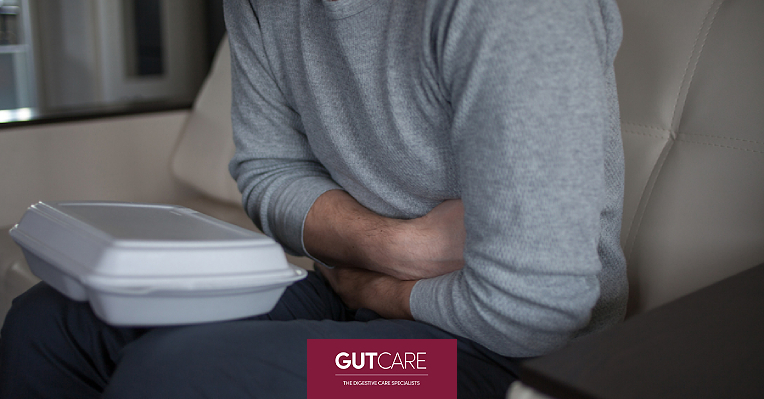8 Poor Gut Health Signs That Most People Often Overlook

Good gut health is imperative and has always been preached in our blog articles. However, being aware of what exactly is normal is not that simple, especially since the general consensus is not to discuss one another’s bathroom habits openly. However, these are unavoidable and uncomfortable truths.
As a result, most people tend to keep their bathroom habits to themselves, living with the discomfort and pain when they should actually make a gastroenterology appointment. With that being said, gastroenterologists have seen and heard it all when it comes to your gut. There are no questions too weird or too insignificant for them to answer straightforwardly.
In this article, we will reveal eight poor gut health signs that most people often overlook. So, read on to discover what is normal and what is not.
1. There is blood in your stools
Spotting blood in your stools, also known as rectal bleeding, should warrant a visit to a gastroenterologist. It could be an initial sign of anal fissures or haemorrhoids. It could also be a sign of something more severe, such as colon cancer. Though it might be called rectal bleeding, the bleeding could occur anywhere in your gut system, from the stomach to the anus.
One clear sign of knowing the location of rectal bleeding is to look at the colour of the blood spots in your stools. If it is red, the bleeding is probably located in your lower intestine. If your stools are black or tarry with a foul smell then the bleeding is probably located in your upper digestive tract . Nonetheless, it is best to see a doctor immediately.
2. Feeling extreme fatigue most of the time
Unless you suffer from sleep apnea or are currently pregnant, extreme fatigue could be an indicative sign of something going on within your body. Extreme fatigue, along with shortness of breath and weakness, are examples of signs pointing towards anaemia.
When you suffer from signs of anaemia and the blood test results prove that you are indeed anaemic, most of the time, it is a result of undetected, slow bleeding in your intestines. The issue is that many adapt to live with extreme fatigue when, in fact, they should get it checked.
3. Experiencing regular diarrhoea
Regular diarrhoea is not normal. Whether it is experiencing diarrhoea every night or chronic diarrhoea throughout the day, these problematic signs often point towards an inflammation or infection. In fact, nocturnal diarrhoea is a common IBD and IBS symptom. Hence, all the more reason why you need to visit a doctor as soon as possible.
4. Your stomach hurts at a specific point
There are several types of abdominal pain. If you experience pain around your belly button, it could either indicate possible appendicitis or gallstones. If you experience a sharp pain in the upper right region of your abdomen, it could be indicative of gallstones. Pain in the lower abdominal region could be indicative of diverticulitis.
With that being said, many gastroenterology issues share similar pain symptoms. As such, it is hard to determine the exact cause on your own, which is more reason to visit a doctor immediately.
5. Your stools float
Stools that float are indicative signs of a high-fat diet. If it is a single experience, do not be alarmed. It could probably be due to the last meal that you had. However, if your stool floats regularly, it could be a sign of flatulence or malabsorption. In most cases, floating stools will disappear on their own without needing much treatment.
With that being said, they can still be caused by several factors, such as a gastrointestinal infection. As such, it is still recommended that you get professional treatment.
6. You often spot undigested food remaining in your stools
Certain foods, such as peanuts and corn, are infamous for appearing undigested in stools. However, if you are able to regularly know what you have eaten just by looking at your stools, it is a clear sign that your food is not getting digested completely, resulting in your body not being able to absorb sufficient nutrients.
Such indicative signs generally point towards a possible gastrointestinal disorder, such as celiac disease or IBS.
7. You strain often when clearing your bowel
Healthy bowel movements should be regular, complete, and effortless. And if you have a high-fibre diet, having more than one bowel movement a day is normal. With that being said, it is not so much about how often you clear your bowel but the need to strain when doing so.
Chronic straining when clearing your bowel can lead to numerous health issues, such as haemorrhoids, anal fissures, hiatal hernia, and rectal prolapse, all of which are not life-threatening but can be uncomfortable and painful.
8. Experiencing regular discomfort after eating
Experiencing discomfort, such as constipation, flatulence, and heartburn, can be normal after eating, especially if you have just had a rather large meal. However, if you experience regular discomfort, seeing a gastroenterologist is highly recommended.
Regular discomfort could mean that your gut has suffered some damage, which can be due to several reasons, such as stress, lifestyle, poor diet, over-the-counter pain-relieving drugs, antibiotics, or infection.
Conclusion
It can be complicated to determine what exactly is normal and what is not when it comes to our gut health. But here is the thing: If you experience any gut or digestive-related signs that might be uncomfortable, painful, frustrating, or out of the norm, do not live with it. Visit a digestive care specialist.
Here at GUTCARE, we specialise in all things related to your digestion. Whether you are experiencing floating stools or fatty liver symptoms, do not hesitate to approach us for treatment and management solutions.
Click here to make an appointment with us today!
Reference(s):
https://www.wellandgood.com/signs-of-bad-gut-health/
https://my.clevelandclinic.org/health/symptoms/14612-rectal-bleeding
https://www.medicalnewstoday.com/articles/321936
https://www.mountsinai.org/health-library/symptoms/stools-floating

HAVE AN ENQUIRY?
You may also send in an enquiry via our online form if you have questions pertaining to your visit or consultation.

FIND OUT MORE ABOUT OUR DOCTORS
Unsure of which doctor to speak to? Take a look at our doctors’ profile to find out more.




